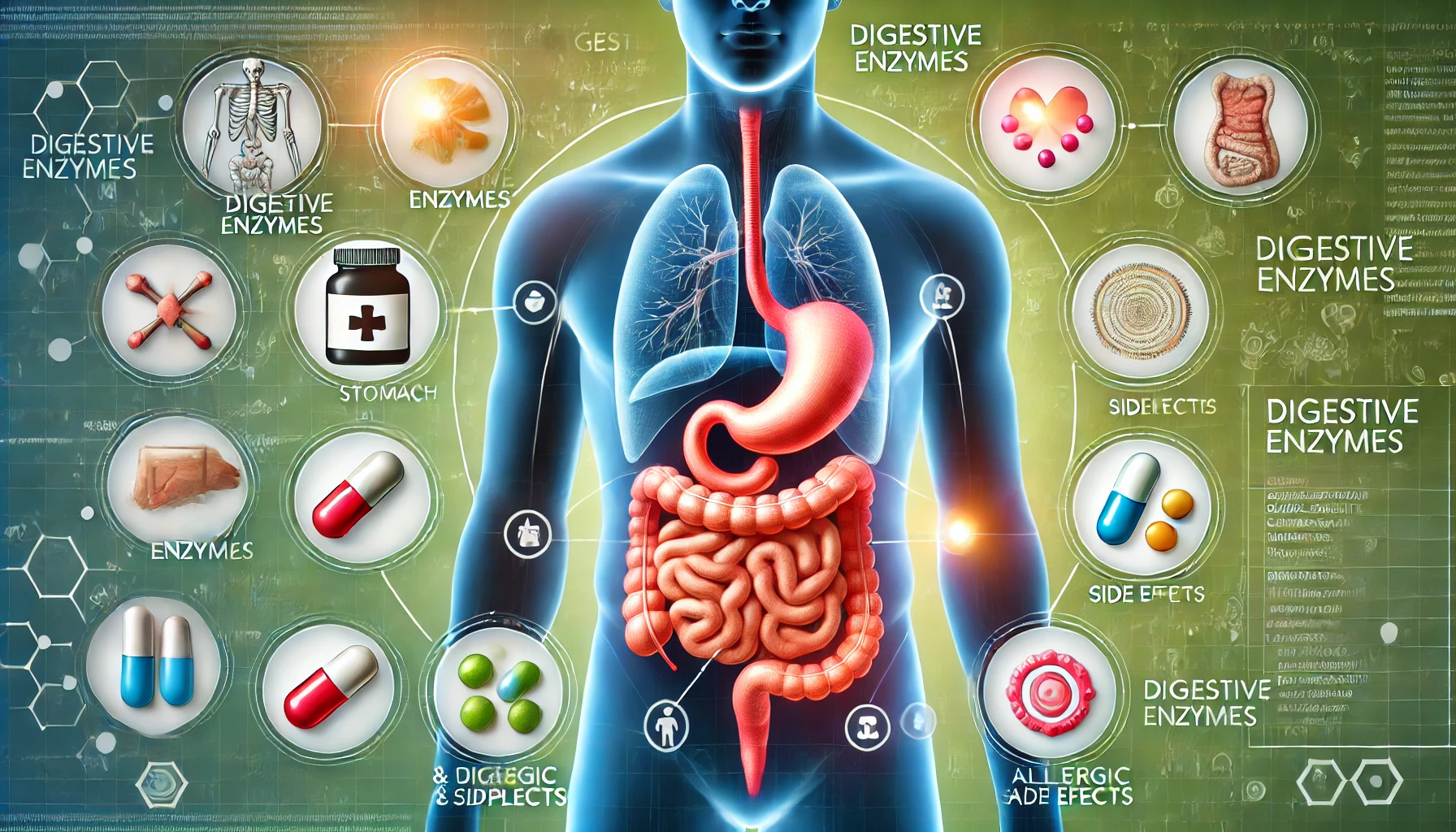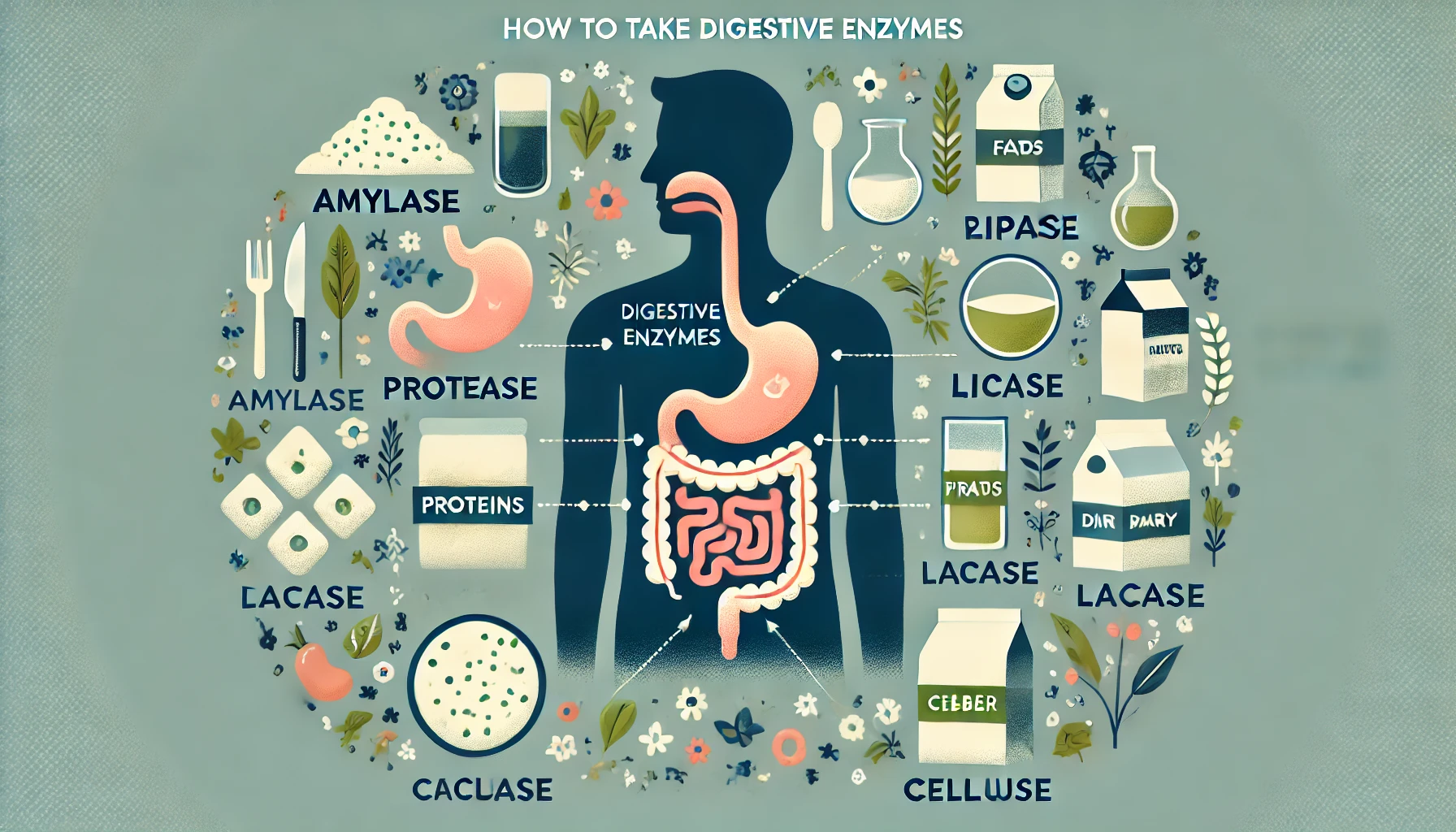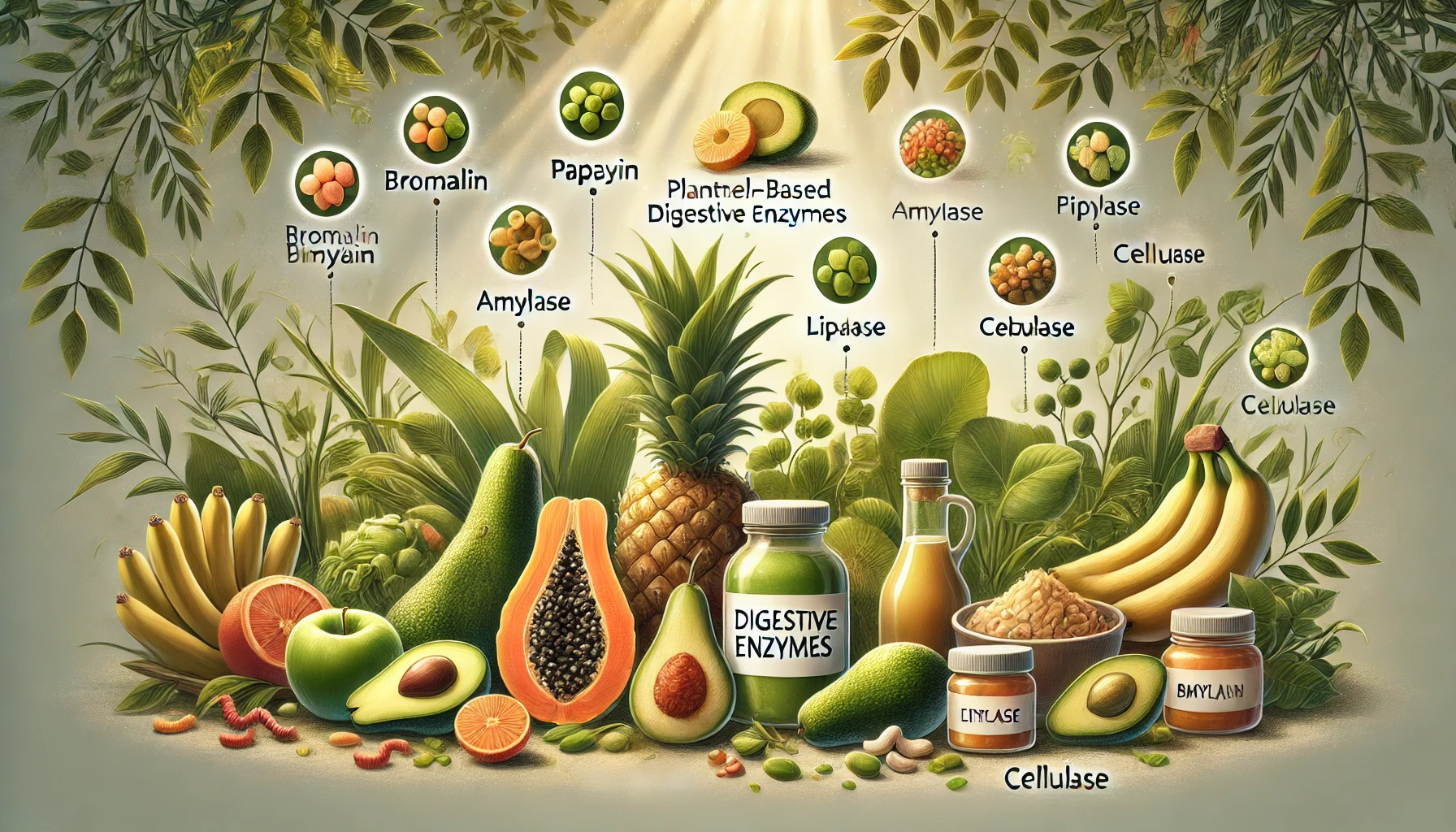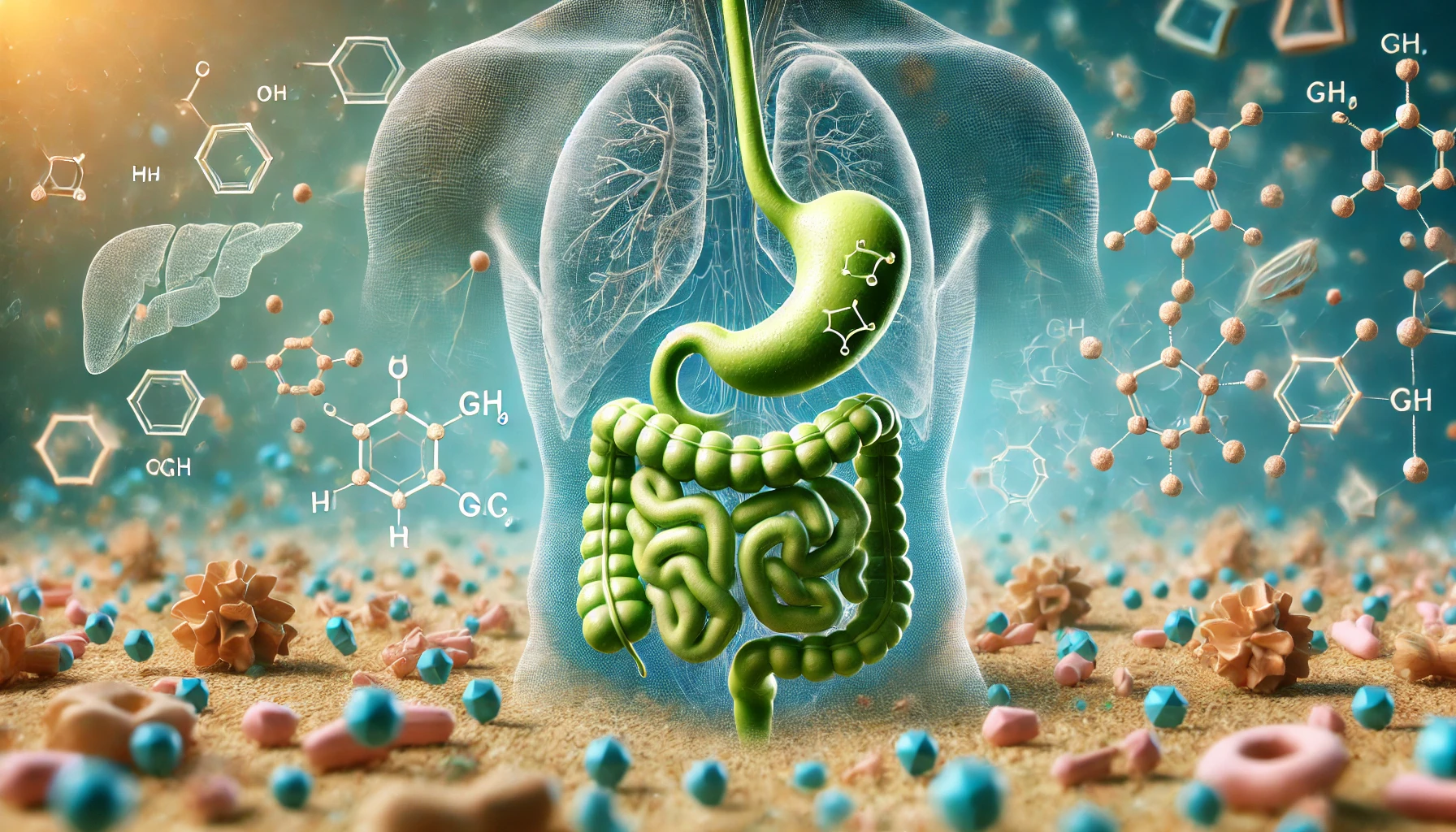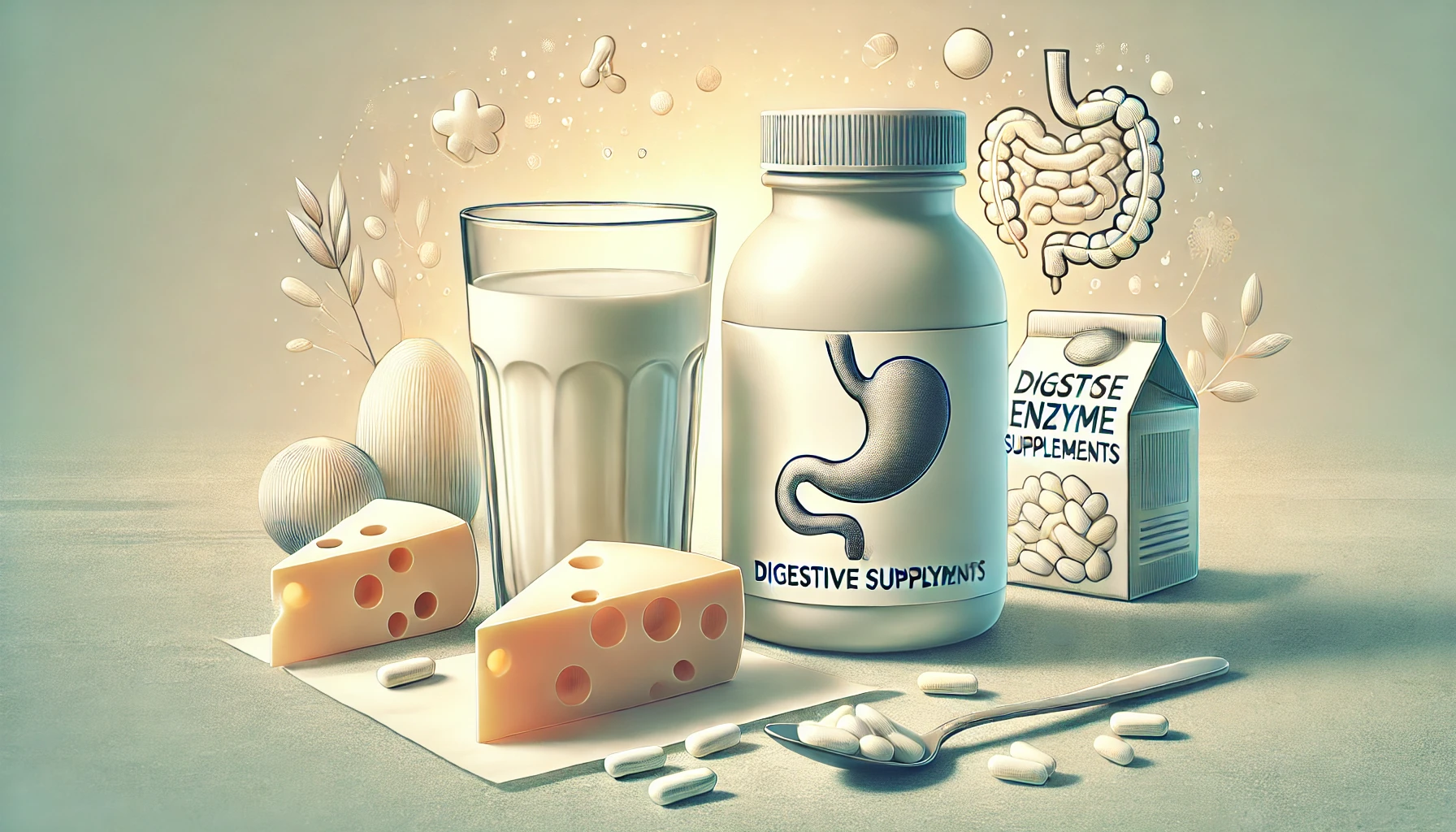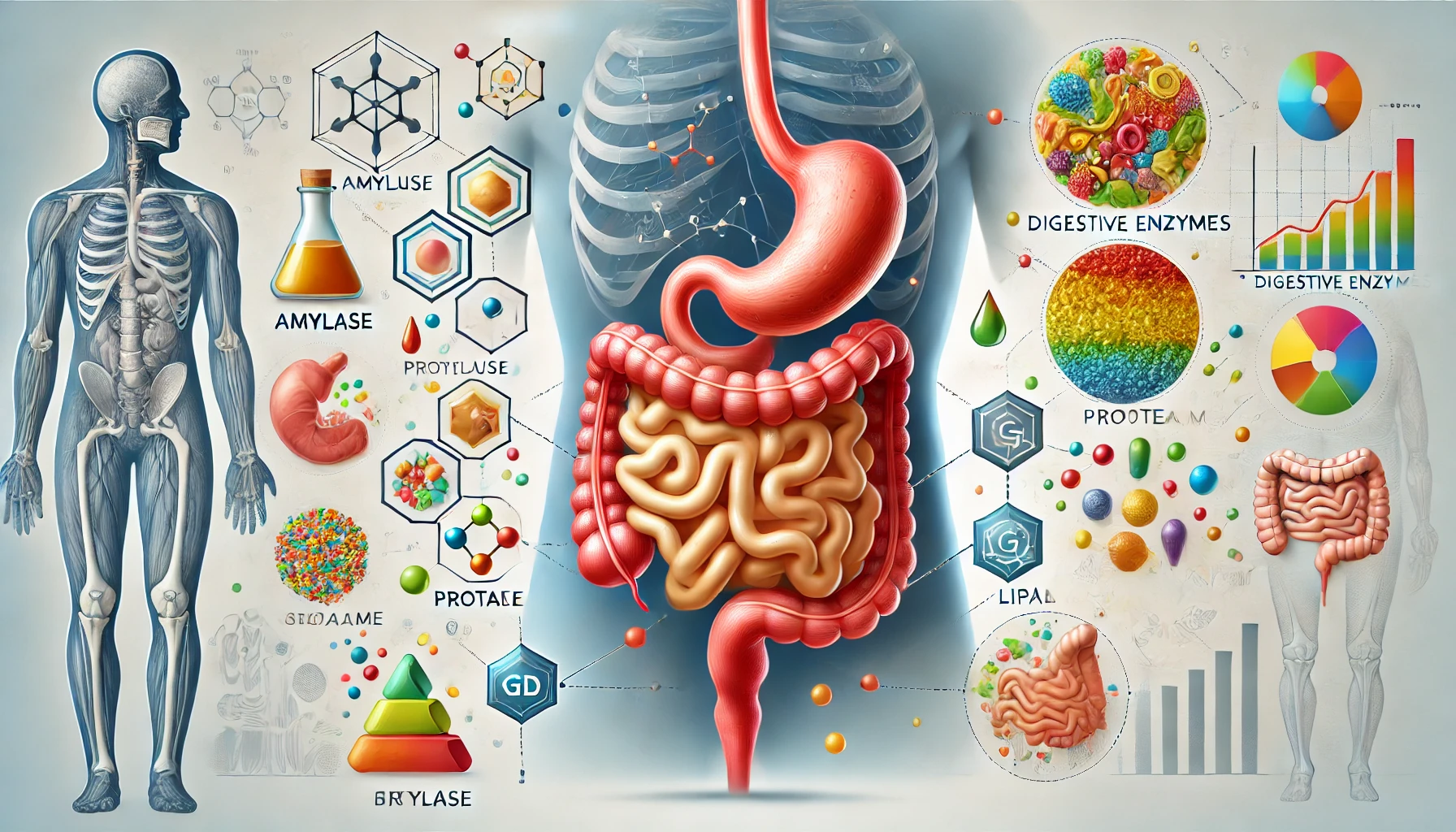If you are suffering from Irritable Bowel Syndrome (IBS), then by now you must have tried all the possible combinations of food that can bring you relief.
But have you tried using Digestive enzyme supplements? These supplements come with a bouquet of digestive enzymes which is specially formulated to address problems related to insufficient digestive enzymes in the body.
As one of the factors leading to IBS might be insufficient digestive enzymes and hypersensitivity to certain food ingredients such as lactose or gluten, these supplements can bring relief.
Very good ones have probiotics and selected vitamins and minerals which help in reducing inflammation and boosting gut healing, thereby solving more than one problem that characterizes IBS. Though scientific research is still limited in this field, studies have shown great promise.
Keep reading and know more about these digestive enzyme supplements and the mechanism by which they work.
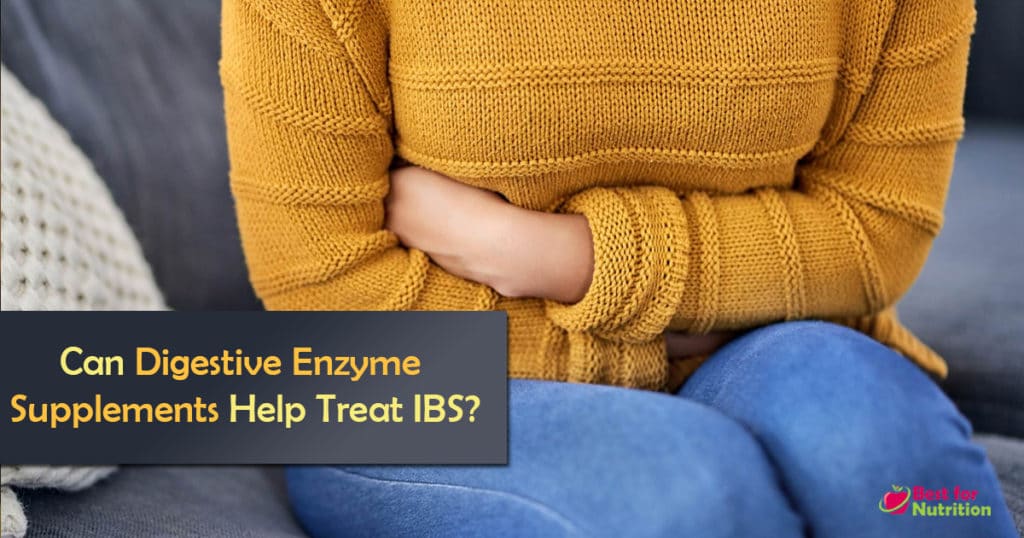
What is IBS (Irritable Bowel Syndrome)
Irritable Bowel Syndrome or IBS is a functional bowel disorder that is characterized by intermittent and chronic abdominal pain, often associated with changes in bowel habits (1).
It is the most common gastrointestinal disorder affecting around 10-15% of the general population in the Western world and is turning into a worldwide phenomenon very fast (2).
As mentioned, IBS affects your large intestine. It can begin in childhood or adolescence or in adulthood. It can resolve unexpectedly and can return later with much more seriousness. Even though there are no tests yet for IBS, a cluster of symptoms happening over the months leads the doctor to diagnose IBS.
Studies have shown that IBS is more common in women than in men (3), (4), (5). People who are suffering from IBS have a sensitive digestive system or are hyper-reactive to some food or ingredient which causes the body to react abnormally to normal gut stimuli such as the passage of gases, fluid, and bowels through the intestine (6).
These stimuli cause pain and severe discomfort among IBS patients. They may experience bloating, a feeling of incomplete evacuation, difficulty passing stool, and so on. The symptoms vary from person to person (7).
IBS is normally broken down into three major subgroups depending on the consistency of the stool (8):
- IBS-D: When the digestive system contracts very fast resulting in diarrhea
- IBS-C: When the digestive system contracts very slowly resulting in constipation
- IBS-M: When diarrhea and constipation occur together with abnormal and inconsistent contraction of the GI tract
Summary: IBS is a common disorder of the large intestine and can develop anytime in your life. IBS causes excessive pain, change in your bowel movement, change in stool consistency, gas, bloating, improper digestion, rectal bleeding, and much more.
Factors That Can Cause IBS
As mentioned earlier, the etiology of IBS is still unknown, but certain factors definitely may lead to IBS or vice versa (9). They are:
- Disturbances in gastrointestinal motility
- Visceral hypersensitivity
- Food allergies such as gluten, lactose, soy, dairy, and more
- Yeast overgrowth
- Acute infection of the intestine
- Physical and emotional stress
- Dietary abnormalities
- Poor eating Pattern
- Too much antibiotic use destroys your gut biome
- Sensitivity to the hormones produced in the body
- Abnormality in bile hormone secretion
- Bile acid malabsorption
In addition to these, there are some other factors that can lead to IBS such as leaky gut syndrome, intestinal inflammation, post-infection stage, and so on.
Let’s now go into detail about whether IBS is treatable and do digestive enzyme supplements help people with IBS. But before that, let’s first know what these digestive enzyme supplements are.
Summary: Even though the precise cause for IBS is still unknown, however, the factors that are important players in leading to IBS are hypersensitivity to a certain food, post-infection, imbalanced gut biome, inflammation in the digestive system, leaky gut, or much more.
Digestive Enzyme Supplements
Enzymes are worker bees that speed up a reaction in the body. There are thousands of enzymes that are working relentlessly in your body and are responsible for the biochemical functions that our body undergoes every minute (10). The enzymes responsible for digestion are digestive enzymes.
They are proteins themselves and are made by the body to break complex food substances such as protein, carbohydrates, and fats into simpler nutrients; amino acids, fatty acids, and glucose. This is what the body can use and aptly function with.
The pancreas is the organ that makes most of these digestive enzymes followed by the stomach, mouth, and small intestine (11). Let’s have a look at these enzymes:
- Amylase: This enzyme is in the saliva produced in your mouth and breaks down carbohydrates and starches into simple sugar (12).
- Lipase: This enzyme is produced in your stomach and alongside liver bile, works to break down fat. These smaller components of fats are then easily absorbed by your small intestine. Lipase also helps in the absorption of fat-soluble vitamins (13).
- Pepsin: These are protein-breaking enzymes secreted in the stomach that break down complex proteins into smaller peptides (14).
- Lactase: This enzyme helps break down milk sugar lactose into its simpler form, glucose, and galactose, that the body can utilize (15).
- Cholecystokinin: This enzyme helps in the digestion of both fat and protein. It also helps stimulate the production of bile in the liver (16).
- Trypsin: This enzyme is formed in the small intestine and helps us digest protein (17).
There are many factors that can reduce the amount of digestive secretion in the body. The ability to manufacture enzymes decreases as you age. It is believed that every 10 years, your pancreas slows down in secreting enzymes.
Many other factors can cause a similar problem, such as stress, stomach viruses, and genetics. Various health conditions may also lower the levels of digestive enzymes. These include cystic fibrosis, chronic pancreatitis, and pancreatic cancer (18).
Digestive enzyme supplements come in handy at that time. They conveniently take the place of natural enzymes and support digestion.
These supplements come in chewable tablet or pill form that mostly contains multiple digestive enzymes usually having an enteric coating that protects it from stomach acid. Some supplements also contain probiotics to make the product have a dual benefit.
They maximize food breakdown, help optimize nutrient absorption by the body, support colon health, and reduce bloating, indigestion, and constipation.
Summary: Digestive enzyme supplements contain several enzymes that are needed to break down the common foods that we have which might be difficult to digest for them. People with insufficient enzymes for proper digestion might benefit from them.
Does Digestive Enzyme Supplements Help Treat IBS?
Even though IBS doesn’t have any specific diagnostic test, it is treatable.
By eliminating the foods that cause inflammation, allergy, and irritation to the gut, incorporating good bacteria to reboot your gut, and using digestive enzyme supplements that mimic actual enzymes aiding the breakdown of food, the symptoms of IBS can very well be minimized, and controlled (19).
Even though more research is needed, many studies have shown the positive effect of digestive enzyme supplements on people suffering from IBS. 1 in every 3 people with IBS has problems with specific food digestion, and the theory that these supplements can help is based on that belief.
Let’s look into how these digestive enzyme supplements might help:
- Digestive enzymes can help break down the food and let your gut a little leeway to heal. Using them for two-three months, plus re-inoculating your system with healthy bacteria (probiotic bacteria) such as Lactobacillus, Bifidobacteria, and other strains can really help people with IBS (20).
You can have probiotic-rich foods such as kimchi, miso, or sauerkraut, foods that have natural bacteria.
- Digestive enzymes such as lactase can help people who have IBS and are lactose intolerant. Their body does not produce sufficient enzymes for lactose (a sugar found in dairy and dairy products) digestion (21).
If you consume it before drinking your glass of milk or biting into your cheese cube, the enzyme supplement will help digest the milk sugar. Studies have confirmed that most often people with lactose intolerance get IBS.
- Some IBS patients experience gas and bloating after eating cruciferous vegetables such as broccoli and cabbage, or beans. Enzymes called alpha-galactosidase help break down the complex fibers in them called oligosaccharides and reduce gas and bloating. Therefore, in cases where these kinds of food consumption make you gassy, specific digestive enzymes can help (22).
- As the supplements help digest the food completely, your body absorbs nutrients much better. This optimal absorption of essential nutrients prevents deficiencies that most often come along with IBS. This in turn helps support colon health and let it heal (23).
- An enzyme that is not produced by the human body is xylose isomerase. This enzyme is made synthetically from Streptomyces sp. They can easily break down fructose into glucose and improve digestion.
- People who have IBS often suffer from incomplete digestion of fat. A high-fat meal can result in difficult situations and make the condition worse. Enzyme pancrelipase can help and bring relief.
However, do keep in mind that IBS can’t be managed or cured with digestive enzyme supplements alone. Medicines to decrease inflammation of the gut, rebooting your system with these enzymes and probiotics, and abstaining from food that causes problems such as gluten and/or lactose altogether will make all the difference.
Summary: Digestive enzyme supplements with their enzymes, probiotics, and essential nutrients can not only help in digestion but also boost gut health. A prescribed dose might effectively deal with IBS.
Other factors that help in IBS Treatment
In addition to the digestive enzyme supplements, steps that can help support IBS treatment are:
- Treating your body with vitamin A, zinc, omega-3 fatty acids, evening primrose, or glutamine; nutrients that will help repair the gut.
- Herbs such as quercetin and turmeric help reduce inflammation naturally and support the healing of a leaky gut.
- Aloe Vera juices and other herbal decoctions that support gut healing.
- Treating leaky gut. This is a big reason for IBS. It simply means your gut lining is broken and therefore food starts leaking and penetrates the tissues beneath it. This plays havoc with your immune system leading to rashes, eczema, and other serious conditions. Getting treated for your leaky gut can also solve some of your problems related to IBS.
Summary: The other potential treatment of IBS apart from digestive enzyme supplements are vitamins, antioxidants, herbs, aloe vera, and glutamine.
Points to Keep in Mind Before you Start Taking Digestive Enzyme Supplements
Scientific data on the benefits of digestive enzyme supplements on IBS isn’t conclusive enough, however, researchers have observed a positive connection that is promising. Before you go ahead and chose your best pick, keep in mind:
- The digestive enzymes are made of proteins and can easily break down by the strong acid present in the stomach. Therefore, for them to reach the small intestine by surviving this is very important. Choose a brand that is designed to do that. Products that are enteric-coated and can dissolve in the small intestine are the best.
- Make sure your supplements have two of these enzymes at least which are backed by research on their effectiveness. They are lactase and alpha-galactosidase. They can help solve problems related to their indigestion and allergies.
- Please check on the additional ingredients present in the capsule. If you are sensitive to a certain ingredient such as soy, dairy, or gluten, you would like to be sure of it before putting it in your mouth.
- These supplements should always be taken with food or slightly before so that your body is ready to digest when food enters the system.
The enzymes work when it is in contact with the food and is in the stomach for nearly 90 minutes. However, veggie capsules take more time to dissolve, therefore taking them 20-30 minutes before a meal can be beneficial.
- Do not take digestive enzyme supplements during the FODMAP elimination or during the reintroduction phase as it may confuse the results.
Summary: Even though digestive enzyme supplements can bring relief to a lot of problems related to IBS, you should always consult your doctor. Take the digestive enzyme supplements on time when you can maximize their effectiveness and make sure to take the supplements which are allergen-free.
Frequently Asked Questions (FAQs) related to IBS
How can you Decide Which is the Best Digestive Enzyme Supplement for Your IBS Problems?
The supplement that contains most digestive enzymes which are necessary to break the common nutrients in food items is the best. Most good supplements contain lipase, lactase as well as cellulase in addition to other enzymes.
Is it Possible to Take Probiotics and Digestive Enzymes at the Same Time?
It is absolutely possible to do so. Probiotics and digestive enzymes work differently and very well do so mutually. They have different mechanisms that do not interfere with each other.
How Safe is it to Take Digestive Enzyme Supplements?
Most digestive enzyme supplements that are sold over the counter are safe, provided they are taken as recommended. However, some studies have observed that bromelain, a digestive enzyme supplement made from pineapple interferes with blood clotting. They shouldn’t be taken if you are in a blood thinner medicine.
What are the Common Side Effects of Taking Digestive Enzyme Supplements?
Though side effects aren’t very common, some people may experience nausea, diarrhea, abdominal cramping, neck pain, headache, dizziness, swelling of legs, hypo, and hyperglycemia.
If these symptoms continue please contact your doctor.
Can you Take Digestive Enzymes with Antibiotics?
Antibiotics may interfere with the functioning of digestive enzyme supplements. But, if your doctor has prescribed you both together, take it as per the direction.
What is the Best Digestive Enzyme Supplement to Take?
Manufacturers have concocted several unique formulas which are essentially a combination of more than one digestive enzyme. They help in digesting the most common foods and are made to be hypoallergenic.
There are however a few supplements that have been believed to be the best in different categories. The ones which are best chewable, best vegan, best overall, or best budget. Check out our article on “The Best 6 Digestive Enzyme Supplement of 2020” and make your choice.
The Final Note
Irritable bowel syndrome or IBS differs in each person in terms of severity and reaction. Therefore, the treatment varies as well from person to person.
Amongst the different ways that help alleviate these symptoms, the intake of digestive enzyme supplements has been proven to be very effective.
However, a clear scientific consensus is still not out.
Many people have benefited by taking these enzyme supplements though, especially the ones who are allergic to certain foods. Keeping in mind the sensitivities experienced by IBS patients, manufacturers ensure the exclusion of known allergens from these supplements.
Many of them prefer natural sources of enzymes and avail them from fruits such as pineapple, avocado, bananas, kiwi, papaya, and mangoes.
Digestive enzyme supplements can prove to be a very helpful tool for IBS-fighting in your arsenal. But, remember it is always better to take the advice of your medical consultant for the right treatment.
